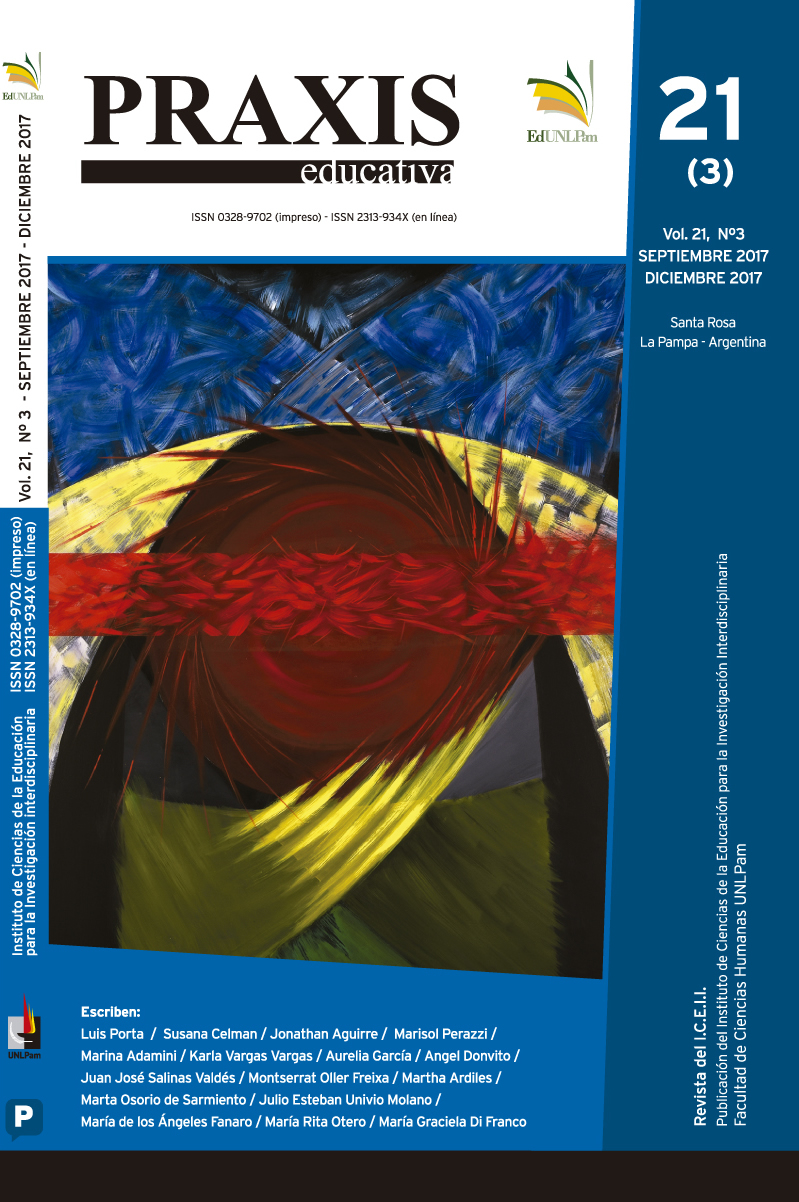Precarización laboral encubierta detrás de la educación como forma de pago: el caso de las pasantías universitarias./ Covert job insecurity behind education, as a form of payment: the case of university internships
DOI:
https://doi.org/10.19137/praxiseducativa-2017-210304Palabras clave:
pasantías, precarización laboral, teoría del capital humano, educación, trabajoResumen
Las pasantías universitarias constituyen prácticas orientadas a brindar a los estudiantes una experiencia formativa en espacios laborales concretos. Sin embargo, diferentes estudios sociales han señalado cómo su escaso costo salarial y legal favorece la utilización fraudulenta de los pasantes como reemplazo de puestos laborales. De esta manera, los pasantes realizan tareas similares a la de trabajadores efectivos sin percibir la misma retribución ni protecciones laborales. En este artículo nos proponemos observar cómo dichas condiciones de precarización resultan encubiertas detrás del propósito educativo de las pasantías y de su consideración legal no laboral. Esto implica analizar los dispositivos de legitimidad social que conducen a la construcción de la imagen de la educación como forma de pago, que subsume sus problemáticas laborales. Desde una perspectiva cualitativa, proponemos realizar un análisis del discurso hegemónico sobre las pasantías, a partir del abordaje de las voces del sistema legal y de referentes del mundo educativo y laboral.Descargas
Publicado
Número
Sección
Licencia
Nota de copyright
Comité Editorial Revista Praxis educativa:
Por la presente declaro que soy autor del artículo titulado (nombre del artículo), que el mismo es original y propio y que no fue publicado en ningún otro formato o soporte con anterioridad. Manifiesto conocer que la revista no me cobrará ningún tipo de tasa bajo ningún concepto, ni recibiré ningún tipo de compensación monetaria
Si el mismo fuera aceptado para su publicación en Praxis educativa, autorizo a la referida revista a publicarlo en forma digital y a publicitarlo en sus redes sociales.
Si el trabajo fuera publicado, adhiero a la licencia Creative Commons denominada “Atribución - No Comercial Compartir igual CC BY-NC-SA”, mediante la cual se permite copiar, reproducir, distribuir, comunicar públicamente la obra y generar obras derivadas, siempre y cuando se cite y reconozca al autor original. Esta licencia se utiliza desde septiembre 2018. En 2016 se adhirió a CC BY NC ND 4.0; y en años 2017 y 2018 (enero -agosto) CC BY NC 4.0..
Esta licencia CC BY-NC-SA Compartir igual no permite, sin embargo, utilizar la obra con fines comerciales. Como autor la revista podré establecer acuerdos adicionales para la distribución no exclusiva de la versión de la obra publicada en la revista me permite el autoarchivo de los artículos publicados, en su versión post-print, en repositorios institucionales, temáticos, páginas web personales o cualquier otro uso pertinente. con el reconocimiento de haber sido publicado primero en esta revista.
Praxis educativa adhiere a DORA (Declaration on Research Assessment) firmada en San Francisco, California, el 16 de diciembre de 2012, y a la Declaración de México (Declaración Conjunta LATINDEX - REDALYC - CLACSO - IBICT).















_(1)2.png)


3.png)










_(2).png)






2.jpg)
8.png)









